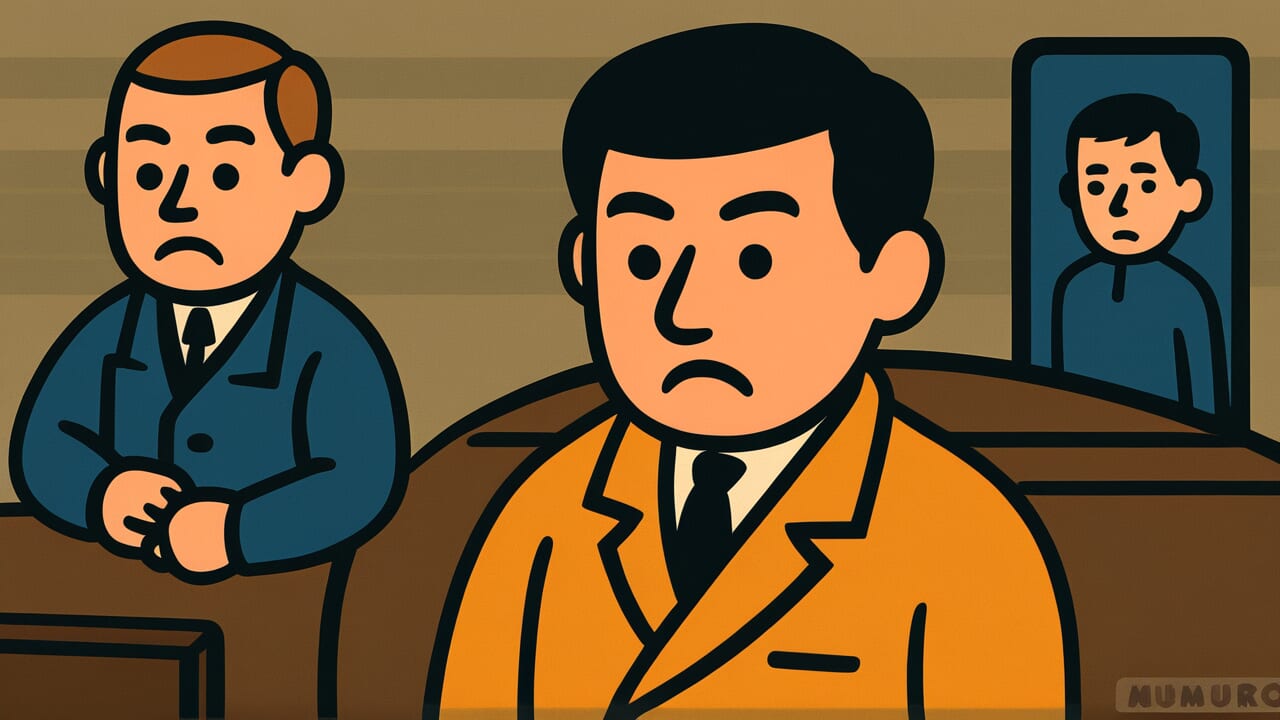How to Read “Charming outside, sullen inside”
Sotoaikyō no uchi sonburi
Meaning of “Charming outside, sullen inside”
This proverb describes the two-faced nature of people who appear friendly on the outside but are cold on the inside. It refers to those who never stop smiling in public and act pleasant, yet behind the scenes show a cold and inconsiderate attitude.
The saying is used critically to describe people whose public face and true personality are complete opposites. For example, someone who treats their boss or customers warmly at work but acts coldly toward subordinates or family.
Or someone who smiles at people who can benefit them but shows indifference to those who cannot. This proverb carries a warning or lesson about such two-faced behavior.
Even today, similar two-faced people exist in different forms. Some act cheerful on social media but are cold when you meet them in person.
This proverb teaches that in human relationships, not just surface-level friendliness but inner warmth is also important.
Origin and Etymology
The exact first appearance of this proverb in literature is unclear. However, based on its structure, it was likely used during the Edo period. It combines two contrasting concepts: “outer charm” and “inner sullenness.”
“Aikyō” means likability or friendliness that makes people fond of you. In Edo, which prospered as a merchant town, this was considered an essential virtue for business success.
On the other hand, “sonburi” is an old word rarely heard today. It describes a cold attitude or unfriendly manner. One theory suggests it comes from “son-buri,” meaning behavior that looks like you’re losing out or being grumpy.
In Edo period townspeople society, separating public interactions from true feelings was important survival wisdom. Merchants would greet customers with smiles while calculating profits in their minds.
Common people sharply observed this human duality. This proverb likely emerged from such wisdom gained through observing people. It strongly reflects the Japanese cultural concepts of front and back, public face and true feelings.
Usage Examples
- That person is charming outside, sullen inside—smiling in front of customers but too harsh with employees
- She’s charming outside, sullen inside, so don’t be fooled by her superficial kindness
Universal Wisdom
The proverb “Charming outside, sullen inside” has been passed down because it sharply points out a fundamental human contradiction. Everyone has both a social face and a private face. This itself is not necessarily bad.
However, when this separation becomes extreme, when the outer face is too artificial and the inner face too cold, people around you sense something is wrong.
Why do people develop such duality? It’s partly a survival strategy. To live in society, we sometimes need to hide our true feelings and adjust our behavior to match others.
But when this performance becomes constant and you lose sight of your true self, relationships become superficial.
This proverb warns us about having too large a gap between our outer and inner selves. Our ancestors saw through this human vulnerability. Friendliness is a virtue, but if it’s a calculated mask, it will eventually be discovered.
And once you lose trust, it’s difficult to regain. What matters most in human relationships is consistent sincerity, both outside and inside. This proverb captures this fundamental human challenge in simple words.
When AI Hears This
The second law of thermodynamics teaches that entropy (disorder) always increases in a closed system. Surprisingly, the human emotional system has a remarkably similar structure.
Acting friendly outside corresponds to “work” in thermodynamics. For example, a refrigerator needs electrical energy to cool its interior, and in exchange releases heat outside.
Similarly, maintaining an orderly smile and polite attitude—a “low entropy state”—outside requires enormous mental energy. By the law of energy conservation, this cost must be paid somewhere.
It appears as rough behavior at home, a “high entropy state.”
What’s interesting is that this emotional entropy accumulates. In physics, adiabatically compressed gas becomes hot. Similarly, emotions suppressed outside concentrate internally and release in more intense forms.
That’s why people who maintain perfect friendliness outside sometimes become extremely rough at home. This isn’t simply a personality problem but a thermodynamic necessity of the emotional system.
In other words, a “second law of emotions” exists in human relationships. Maintaining completely orderly behavior continuously is impossible, just like physical laws. Disorder must erupt somewhere.
Lessons for Today
This proverb teaches modern people that surface-level friendliness alone cannot build true human relationships. In today’s social media age, everyone tends to present themselves in the best light.
However, the gap between a bright online image and cold offline attitude actually damages trust.
What’s important is maintaining consistent behavior both outside and inside. Of course, adjusting your behavior to different situations is necessary. But the underlying sincerity should remain unchanged.
Being friendly is a wonderful quality, but it shouldn’t be a calculated mask.
What you should truly aim for is warmth that doesn’t change whether you’re outside or inside. This is certainly not easy. When you’re tired or stressed, you might act coldly toward those close to you.
But when you notice this about yourself, remember this proverb. The effort to reduce the gap between your outer and inner face leads to true personal growth.



Comments